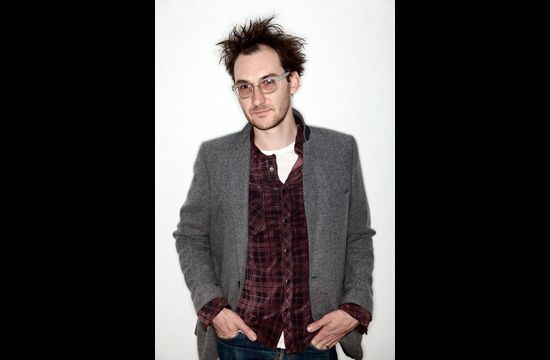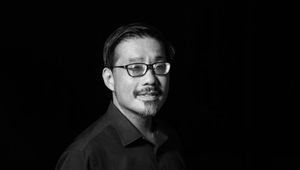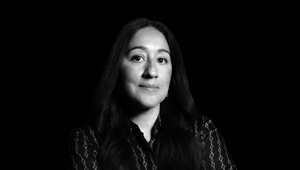
5 Minutes with...Benjamin Palmer, Barbarian Group

5 Minutes with Benjamin Palmer, Barbarian Group
Interviewed by LBB editor, Gabrielle Lott
Interviewed by LBB editor, Gabrielle Lott
LBB > Tell us about the Barbarian Group; who you guys are and what your offering is.
BP > Barbarian Group started ten years ago as a digital production company. All our clients were advertising agencies: which was super fun and we did that kind of work for five years. At the time we worked with every big agency in the US and with some clients in Europe and Asia. We would just do cool projects for big brands. We did a lot of them - a million micro sites, lots of different things; varying projects. Then we did the ‘Subservient Chicken’ in 2005 which was a really big hit and that broke us out of having only advertising agencies as clients and into directly working with brands – they started calling us. We hired account people and started doing projects more directly with brands, which had a similar vibe as when we were working with agencies, except we were just working directly with the digital person on the client side. So that was cool.
In the last two years I think everything has really changed a lot in the industry. The digital side of things went from being the progressive thing (it was kind of on the sidelines in the marketing world) to actually becoming the centrepiece – the main hub, the main point of contact for brands to interact with people. So, we’ve spent the last couple of years building out a big social media department, planning department, analytics. A more senior client service, senior creatives, a product group – with an eye towards building ourselves into a creative agency that focuses on digital and that makes things.
We are good at the hard part and so we’ve brought in some folks that are hybrid digitally minded people that can create traditional marketing as well. I don’t believe that we want to be a full-service agency. We like the Internet and we want to focus on that.
LBB > You know where your strengths lie?
BP > Yeah, and we want to be biased. We want to be futurists, it’s just that our chosen medium is coming into its own, so we’re growing up a little bit. It’s pretty interesting – it’s been a really interesting couple of years. We’ve added a lot of new people… Which has been great, it’s very rejuvenating. Yeah, we’re having a good time.
LBB> What’s your history? How did you get here?
BP > I’m a physics school dropout. I went to RPI for physics and chemical engineering. I dropped out and started doing some graphic design stuff and working in a night club, doing their marketing…stuff like that and doing some DJing.
LBB > Quite a different jump?
BP > Well, I had a job at the radio station at the physics school, so it wasn’t that crazy a leap… I was really into technology and I was on the Internet before the World Wide Web existed. You know, when Mosaic and the first web browsers came out and then the web started, and the internet began to become a more visual medium and I just thought ‘wow, this is the coolest thing right now’. So, I taught myself everything as it came out and started getting jobs doing that - just freelance work. I lived in Boston at the time and I just worked at tonnes of companies; nothing really in marketing.
Then, a few years in, maybe in 1998, I had an agent that would find me jobs and so I ended up getting a few jobs at Arnold who did all the VW stuff at the time. They were a really progressive agency. I didn’t really know much about the advertising industry at all - but I liked that. I liked working at Arnold and I liked working on those projects, but I didn’t want to work at an advertising agency at that point. It was like you were the new guy in an old regime and even though they were being really progressive there were still not that many people around you that you could learn from. It did give me the chance to figure out how advertising agencies produce commercials – the process from idea to creation and it made me think, ‘I bet we can do that with the Internet’. So, I got the few other good people that I knew in Boston and we started a company in my apartment. We still worked with VW through Arnold, we got some work with Nike, got some work with Saturn; we got a few big projects which meant we could hire some people and it’s been ten years of working all the time ever since (laughter). It’s fun. I love it!
LBB > Are you from NYC originally?
BP > No, I moved here full-time about four years ago and before that I had a few years where I was living in Boston, but I had a place here, which meant I’d come to NYC two weeks of a month.
LBB > What is it about NYC that drew you here?
BP > It’s a better city for the HQ (of Barbarian). There is more business here. We sort of outgrew Boston, I think, a little bit. And I used to come here as a kid. I grew up in western Massachusetts and NYC was closer than any other big city, so I don’t know; it’s the best city in the world.
LBB > Why?
BP > It just is… It’s a fact.
LBB > Elaborate
BP > I think the city gets excited when you try to do something. I think it is the most entrepreneurial city in the world. There is not much standing in your way to stop you from trying things out. If you are doing something that’s good and that people like, it will be successful. Other cities can be more traditional in their viewpoint – like this is how things are done. There is no ‘how things are done’ here in NYC, you can just give things a try – it’s cool. Every single industry you can think of is here and as such there’s a lot of cross-pollination. It’s great.
LBB > You are President of the Art Directors Club. Can you talk to us a little about the ADC and about your role?
BP > Sure. The ADC is a non-profit advertising club; a fraternity. It has always been a place where people that are actively working in the industry can come and gather and share information. They have an award show that, unlike others, occurs all year round. In the past they’ve had a restaurant in the club, bars; all this stuff… It’s a really great gallery space right now. There are events almost every day at the ADC HQ. Some of it is an exhibition of current work. Some of it features things related to the industry such as technology expos, seminars, print focus – lots and lots of different events and subjects. There are a lot of educational programs – we have the Young Guns, which is this really great young, industry competition.
I have been on the board for the last four years.
LBB > Do you have to be asked to be on the board? Are you invited?
BP > Yes, it is invitation only. And then they asked me to be president starting last fall; which is a bit like being asked if you want a second job (laughter). No, it’s very flattering and I believe it is a really important place. I don’t think there is anything else like it in the world. It’s a working board, it’s a small organisation, and it’s a non-profit.
We haven’t had a director in various years but this May, Ignacio Oreamuno of ‘Ihaveanidea’ has filled the role. It wasn’t great not having a director – it stopped us pushing things forward; which is why it is great to have Ignacio, to merge all the stuff he has been doing over the last ten years into the ADC – which is huge! It is totally massive. It should be super cool. There will be a lot more content, a lot more development and growth within the ADC on a regular basis. Portfolio night is going to be really big, we shall globalise a little bit. It’s good.
LBB > How important are awards to you and what value do you place on winning them?
BP > I think it’s a good thing, but it’s not the only thing. In the best circumstances it helps elevate the best work and raises the bar for the industry. I know a lot of people who are more traditional folks who don’t like the fact that there are as many clients at Cannes, but I think it’s great. If the clients care about that kind of stuff then it perhaps will make it easier to sell ambitious work to clients because they are then part of the works process – that they get to do something cool. I think that is better for the business and I believe it is important for hiring people, of a certain type.
LBB > So, to you, awards are important for providing opportunity and meeting people? What does it mean to you for your work to win an award? Does it make it more enjoyable, does it make you prouder?
BP > I think it is important. I wouldn’t say it is our primary motivator, but it is up there. Because we mainly work in the digital world and we know whether we did a good job, based on the analytics, before the next award season comes along. So we already know if we’ve achieved and excelled. We know how many hits we got, we know what the sentiment is and, as such, we’re more on a day-to-day basis focusing on that in terms of our product success. However, I do believe that in terms of the industry, putting them into context, as in their place, they move us forwards and they are a pretty important indicator.
LBB > How do you find and source talent?
BP > Oh, all over the place. Some people come to us, because they believe it will be fun to work here… It is fun to work here, by the way, for anyone who wants to come join us (laughter). Sometimes we use recruiters, or just friends of friends put the word out. We put vacancies up on twitter and we usually get responses and then we’ll hire some people – it depends. It’s a real mix – your regular mix of stuff. We don’t have a secret trick. Maybe some of the schools we go to. We try to have a good relationship with some of the professors so that they tell us who their good students are.
LBB > Do you do a lot with students? Interns? Do you teach?
BP > We do, yeah. We have a lot of internships actually, yeah. Tonnes actually. We have a lot of people that have been here for years that started as an intern. We hire our interns sometimes. I have taught, but not on a regular, the whole semester basis, but there are other folks here that are teachers and they really like it a lot. I think it’s good, I think it makes them better mentors and presenters here, internally and also when we have to present work to clients. I believe it helps with public speaking in general.
LBB > What has been your favourite job in the last 12 months? Something that has resonated with you, that you’ve really enjoyed?
BP > I like the work that we are doing for GE Electrics; we are doing a lot of really cool story telling work for them and we do the GE show (http://bit.ly/KwEhEQ), which is like this sort of really high-production value show. We do videos, games, visualization; we are doing stuff that is really cool for a brand that previously was not doing really cool stuff. So that’s fun and very rewarding.
We did a cool project for Pepsi in which we had an internet taste test where we had all these comedians from ‘Funny or Die’ that would look at your Facebook profile and create a video impersonation of you trying the soda for the first time and then would mail it back to you. So we did 400-500 of those (http://bit.ly/HcsiPN). Jokes… We’ve launched a really cool campaign for C40, which is Bloomberg’s climate change initiative that is about all the mayors in the biggest cities in the world getting together and creating policy on a city level versus on a government level and we’ve created a really beautiful website for that (http://bit.ly/3M0wWF)
LBB > Do you still enjoy working in advertising?
BP > Yes, I do because it’s always changing. I think as long as I am in the zone where there is a lot of progress, year after year, I’ll be happy about it. It has certainly not felt stagnant in terms of the work that we are creating. I’m learning new things all the time – I think that’s pretty fun.










